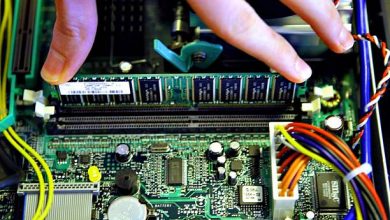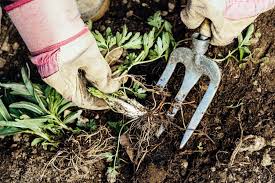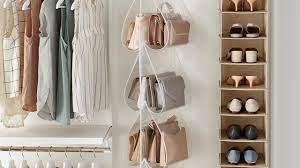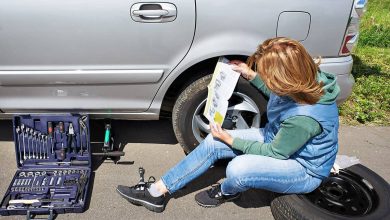How To Deal With Period( According To Expert)
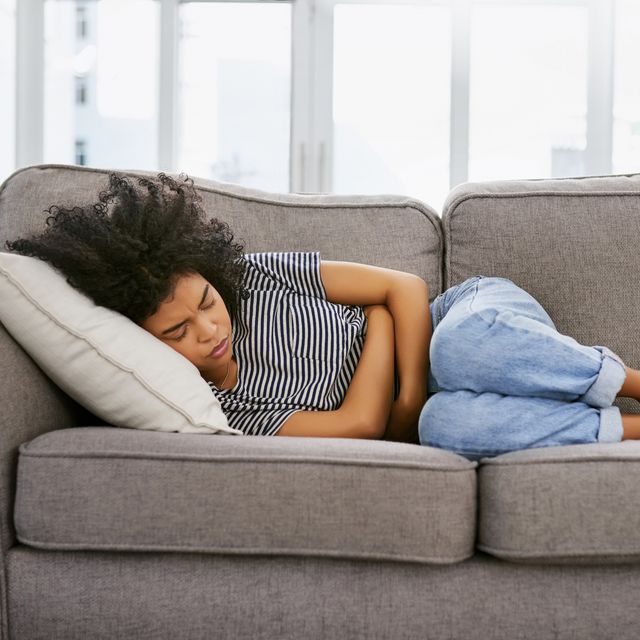

FAQs & Answers
1, What can I do to manage cramps during my period?
To control period cramps, you should engage in regular activity and keep your BMI within the usual range.
2, Is a pad sufficient in place of a liner?
On the days of your cycle when you are heavy, liners are too thin. Typically, pads are thicker and more practical during periods than liners. How to Negotiate(Steps and Requirements}
3, How do beginners deal with periods?
Beginner’s Period Advice
- Read the packing.
- Steer clear of synthetic materials.
- Select organic items.
- Examine your breasts.
- Keep a journal.
- Consult your buddies.
- utilizing tampons
Change the way you think about your period
Many people view their period as something they must endure and dread when it finally arrives. Although the actual hormones in your brain vary during your menstrual cycle and may impact your mood, you can also choose to change the way you think about getting your period. To view your period as a sign of adulthood and a necessary component of your life can be empowering.
- Menarche, often known as your first menstruation, is frequently celebrated as a young girl’s transition into womanhood. You might stop dreading your period and learn to deal with it if you know that it can be celebrated. How To Put A Baby To Sleep
Observe your menstruation closely
In addition to alerting you when your period is due, keeping track of your menstrual cycle can also help you determine when you are viable and capable of becoming pregnant. Unexpectedly getting your period can make you feel unprepared and anxious. A calendar, a journal, or a mobile device app can all be used to keep track of the day your period begins and ends.
- You may track your period with the aid of various apps, including Strawberry Pal and Clue, and you can even set alerts for when your subsequent cycle is about to begin.
- Keep in mind that your first year of menstruation is generally unpredictable and sporadic. They can skip too. Everything about this is normal. Your cycle should start to have a more predictable pattern and become simpler to monitor after the first year, though.
- Everybody has a different menstrual cycle. Your period may last between two and seven days, and they might extend between 21 and 35 days. It’s possible that your period is erratic and doesn’t come on at the same time every month.
- When you are sexually active, it is crucial to monitor your period. It assists you in identifying your peak fertile period, which is crucial information to know whether you want to avoid pregnancy or whether you want to get pregnant. How To Be Good At Mathematics
Always carry period hygiene supplies with you
Maintain an extra pad, pantyliner, or tampon in your backpack, car, and purse. In this way, you are still protected if you start your period and do not have access to other menstrual products. This is particularly crucial if you have irregular periods and can’t tell exactly when your next period will start. Also, keep a dollar in quarters on hand in case you suddenly find yourself in need of a pad or tampon. How To Have A Successful Relationship With A Mama’s Boy
- It’s a good idea to carry a few extra feminine hygiene items so you can give one to someone else if they ask for one. 30 Hobbies That Make You Money
Eat meals high in iron
Your body begins preparing for a prospective pregnancy during ovulation, which takes place 12 to 16 days before the start of your period. Progesterone and estrogen are two separate hormones that your body releases to alert your body to the impending pregnancy. You’ll need to consume more calories than normal during this period because your metabolism is accelerating. Consume a lot of meals high in iron to help make up for the iron you’ll lose before and during your period. 30 Ways To Make Money Online And Offline
- Dark leafy greens, eggs, meat, beans, lentils, and beans are all excellent sources of iron.
- Throughout your period, you should keep eating meals high in iron. Some period symptoms, including exhaustion and cramping, may be lessened as a result. How To Make Samosa (Tips)
Approaches to lessen discomfort
Remain hydrated
A lot of people experience bloating and discomfort during their period. Drinking enough of liquids can help reduce bloating. Caffeine, alcohol, and sugary drinks should all be consumed in moderation. It’s a good idea to drink lots of fluids, especially water, to assist reduce bloat.
Heat can help to relieve cramps
When you get cramps, heat helps to relax the muscles in your abdomen. You can take a heating pad or hot water bottle and put it over the painful area on your stomach, or you can take a warm bath or shower.
- The pain may also be reduced by lightly massaging your lower abdomen in circular strokes.
Read Also: How to Negotiate(Steps and Requirements}
Utilize painkillers
During their periods, many people feel some measure of pain. This discomfort frequently coincides with cramping when the uterine wall tightens. To assist manage your pain, you can take over-the-counter painkillers such as ibuprofen, acetaminophen, and aspirin. You can purchase these pills at any pharmacy, and you should always take them as prescribed by the manufacturer. Healthy Aging Tips For Men Over 40 (14 Tips To Stay Healthy)
- If over-the-counter pain relievers do not relieve your severe cramping pain, consult your doctor.
Change your diet
You can notice that you have distinct food cravings when you’re on your period. Unfortunately, processed, sugary, and salty foods can aggravate cramps. Your diet should consist of nutrient-dense items that will keep you active all day. It’s acceptable to give in to a yearning for a particular treat, such as chocolate or ice cream, as long as you do it in moderation. How To Avoid Miscommunication
- Bananas and leafy greens, which are rich in potassium, can naturally reduce bloating.
- Consume a lot of calcium-rich foods, such as dairy, almonds, and beans.
Take part in some exercise
Exercise is a fantastic natural pain reliever. Exercise causes your body to create feel-good endorphins that might reduce pain and help you forget about period discomfort. If you are in discomfort, you might want to perform a less demanding workout than you usually would.
- Yoga and other low-impact exercises that warm up your core can also assist to reduce bloating.
- If you really don’t feel like going to the gym, feel free to skip it. Exercise can aid with symptom management, but you don’t have to push yourself to do it.
If you experience uncontrollable symptoms, consult a doctor
While some discomfort and agony are normal during your period, if your symptoms become unbearable you may need to see a doctor. You can discuss these concerns with your gynecologist or primary care physician, and they could suggest that you see a specialist. They might be able to recommend taking oral contraceptives, changing your lifestyle, or prescribing painkillers. 22 Top Foods For Promoting Heart Health(All You Need to Know)
- If you bleed heavily between periods, experience excruciating cramps, or if your flow lasts more than 10 days, you should consult a doctor. How To Set Boundaries With People
Read Also: How To Stop Procrastinating(Tips)
Caring for yourself
Put on proper undergarments
You should wear underwear that you don’t mind getting messy when on your period. Even with the proper menstrual hygiene supplies, you still run the risk of leaking onto your underwear. Some people choose to have a few pairs of underwear on hand for their period-only wear. Especially if you’re using a pad, you might feel more at ease wearing full-coverage bikini briefs during your period rather than thongs.
- For your period, try to get cotton underwear. In addition to being cozy, it might be able to lower your risk of developing yeast infections.
- Darker-colored underwear hides stains better.
- Cotton underwear is preferable since it is kinder to the skin and allows the area to breathe.
Get lots of sleep
You can have greater fatigue than usual when you’re on your period. While weariness actually lowers your pain tolerance, cramps and bloating can cause pain and discomfort that makes it harder to fall asleep. Try to get at least eight hours of sleep each night, and if necessary, take a nap during the day.
- You can improve your quality of sleep by stretching, doing yoga, and engaging in some light exercise.
- During your period, your body temperature increases, making you feel warmer. Keep the temperature in your bedroom between 60 and 67 degrees Fahrenheit, or 15.5 to 19 degrees Celsius, as feeling warm can make it harder to fall asleep. How To Stop Procrastinating(Tips)
Read Also: How To Deal With Anxiety(2023)
Take steps to unwind
Periods can be a hassle and cause you additional stress. After a long day of exploring, give yourself some time to unwind and locate a quiet place to collect your thoughts. Find ways to unwind and divert your attention from any pain or discomfort you may be experiencing.
- Act in a way that makes you joyful. You may, for instance, dance in your room while listening to your favorite music and musicians.
- Find ways to unwind or soothe yourself, such as through meditation, journaling, painting, listening to calming music, or watching television.
- Relaxation may also be aided by aromatherapy. Use essential oils of rose, lavender, or sage.
Anytime you feel the need, swap out your period hygiene product
Tampons should be replaced every four to six hours, and pads every three to six hours. Never use a tampon for more than eight hours; doing so raises the possibility of getting toxic shock syndrome (TSS). Menstrual cups are the most environmentally friendly choice because you can leave them in for longer than twelve hours. You may feel more rested and assured that you won’t leak if you switch your period hygiene product.
- If you have a thicker flow or it is the first few days of your period, you might need to change your menstrual hygiene product more regularly. How to Step out of Your Comfort Zone
Expect mood swings while you’re on your period
Mood swings caused by hormonal changes can happen throughout your period. You might, for example, experience sadness, anxiety, or irritability about circumstances that ordinarily have little bearing on you. Be mindful that your emotions may be influenced by your hormones rather than how you genuinely feel if you are upset about anything. Avoid making important decisions or engaging in conflict during this period.
- You can track your feelings each day when you’re on your period to see if you notice that you’re sadder or tenser.
- Contact your doctor right away if you are having frequent mood changes or have any suicidal thoughts. The premenstrual dysphoric disorder is a condition that you may have and it can seriously affect your mood.
Read Also: How to Step out of Your Comfort Zone
Conclusion
When it comes to learning how to deal with your period, it is important to remember that everyone has different needs and preferences. What may work for you may not work for someone else. It is important to research and find methods that best suit your lifestyle and preferences while taking into consideration any health issues or other concerns you may have. Some general tips include staying hydrated, using menstrual health products such as pads or tampons, adjusting your diet and exercise accordingly, being aware of any potential triggers of cramps or discomfort, getting enough sleep, and seeking medical help if needed.

